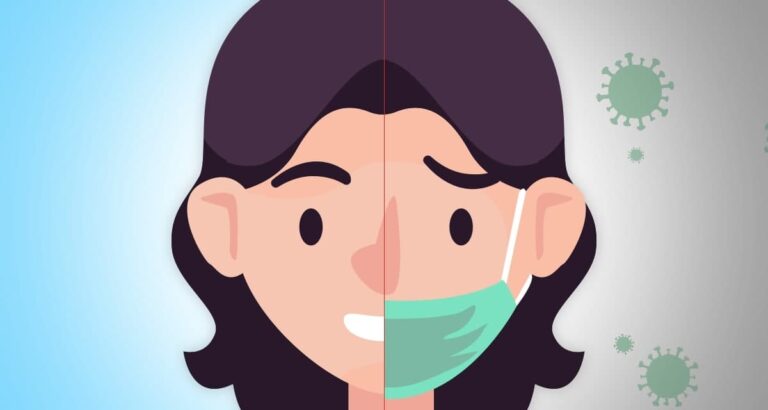
Feenzu Sherpa/Kathmandu:
The year 2020 was quite a rough ride for every human being as our lives jumped from normal humdrum to pandemic routine in a jiffy. The coronavirus definitely impacted everyone mentally as well as physically – some more than others.
In Nepal, like many other countries, a situation of emergency escalated quite quickly as the nation was forced into a sudden lockdown with only shops selling ‘essential items’ allowed to open, that too only for certain periods of time in a day.
We were all busy protecting ourselves, our family, and our businesses from this pandemic while adapting to the ‘new normal’ i.e. social distancing, use of masks, and a frenzied need for hand sanitizers. While adults were having a hard time coping with this new phenomenon, it is only imaginable how children must have felt — like their new reality was straight out of an end-of-the-world movie.
The world continued to adjust to the new norm of isolating and social distancing whereas certain aspects of life changed dramatically to maximize people’s safety. The alarming spread of coronavirus caused a havoc in the educational system, forcing educational institutions to shift into new teaching methods such as online classes and virtual learning.
However, online classes are not accessible to everyone as they are limited to the reach of electronic gadgets, good internet connection, and adequate electricity supply.
According to a report by UNESCO, 1.6 billion children and youths across 188 countries were severely impacted by the temporary closure of educational institutions during the pandemic.
Though some participated in online classes and schools have by far claimed such an approach to be efficient, many parents doubt about the quality of virtual education.
“My daughter’s online classes start at 8:00 am. She opens her computer and attends every class. However, she is not adequately attentive and her progress is invisible. Sometimes I even catch her watching YouTube while she is attending her online classes,” said Mana Maya Tamang, her daughter a student of Grade VIII.
Tsheten Dukpa, whose son is a Grade I student, said that his son’s school never even started online classes claiming that the classes were “not very important for primary levels”.
Meanwhile, the Government of Nepal is considering conducting physical examinations of SEE and Grade XII students based on online classes.
Similarly, loneliness during school closure is quite common among kids as they are separated from their friends whom they would otherwise meet on a regular basis.
“Children are anxious as they are confused about what’s going on as their daily routine is obstructed and even though the lockdown is over, children might be anxious that there might be another lockdown. Hence, parents should remain calm in front of their children, and constantly reassure that this situation is temporary and everything will be fine,” said a neuropsychiatrist, Dr Ritesh Thapa.
“Children who tested positive for COVID-19 and were isolated will later in their lives be prone to Post-Traumatic Stress Disorder (PTSD) with long-term mental impact,” said Thapa.
Amid closure of schools, social distancing and lack of physical exercise as well as outdoor activities, the electronic media came to the rescue of those children who had access to such technologies during home confinement. But online world is not short of drawbacks.
Children were exposed to social media, mostly unguided and unattended, where fake news made it up to their newsfeed causing fear. And if that wasn’t enough, young girls were harassed and abused by online perpetrators. The Cyber Bureau of Nepal Police on November 12, 2020 arrested a 20-year-old boy for his involvement in virtual sexual harassment.
The perpetrator had created a fake Facebook ID and frequently sent sexually explicit obscene messages as well as pictures to two 13-year-old girls and posted child pornography.
“Parents should spend quality time with their children, regularize their daily schedule, do fun activities together to take their minds off the crisis, encourage them to do physical activity, and help them in their hobbies. The need of the time is to listen, understand, reassure children, and make them feel loved and safe. Parents should closely monitor children for any signs of change in behavior. Children may need extra love and attention during times as such,” Thapa added.





